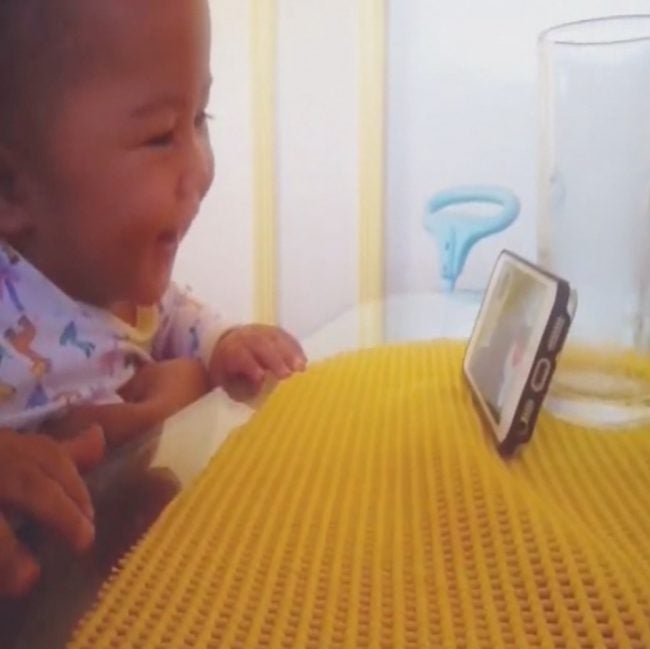Study: Toddlers benefit from live video chat interaction
EASTON, Pa. (WISH) — New research says screen time can actually be a good thing for kids.
For years, The American Academy of Pediatrics has said children under two years old should not be watching television or using tablets. Experts say those who watch too much media have poor language skills and miss out on other activities that would be more useful for development.
This new research says that may be true in most cases, but not with video chat, like FaceTime. FaceTime is a tool many have used when away from loved ones and for children it can be a connection to distant grandparents or even working moms and dads.
A team of students at the Lafayette Kids Lab lead by Professor Lauren J. Myers at Lafayette College in Pennsylvania studied 60 children ages one to two years old.
30 of the toddlers watch real-time FaceTime conversations, while the other 30 watched pre-recorded videos. In both cases, the adults on the other side of the screen were teaching cognitive lessons like new words and patterns.
The researchers found that the young children quickly noticed the difference between live and recorded video and were much more active participants with the FaceTime interactions.
“It’s really motivating to talk to somebody who is responding to you and praising you and smiling at you and using your name and that kind of social motivation, is up key for learning,” Myers said during a FaceTime interview with 24-Hour News 8.
According to the study, starting at about 17 months, children begin to get something out of live video interaction with people and are able to apply the interaction with people they know in real life. The same does not hold true for video interactions that are meant to seem real, but are not. Those often include pauses after questions and default reactions, similar to TV shows like Nickelodeon’s Bubble Guppies and Disney’s Mickey Mouse Clubhouse.
If you do use FaceTime, Myers and her team suggest reading books during video chats or have the same toy the child has to interact together.
“Help them remember experiences that they’ve had. Parents can also help the child pay attention to the screen and they can prompt the child to say the things that the person is asking them or to respond to the person on the screen in lots of ways,” Myers said.
The Lafayette Kids Lab team will publish their study “Baby FaceTime: Can toddlers learn from online video chat?” in the new issue of Developmental Science. Myers plans to continue her research with the help of Lafayette College Senior Edoukou Aka-Ezoua and Junior Christopher Felix.
